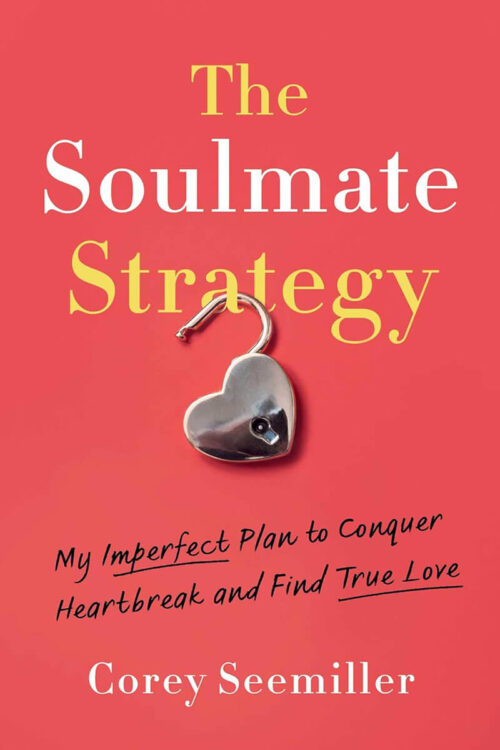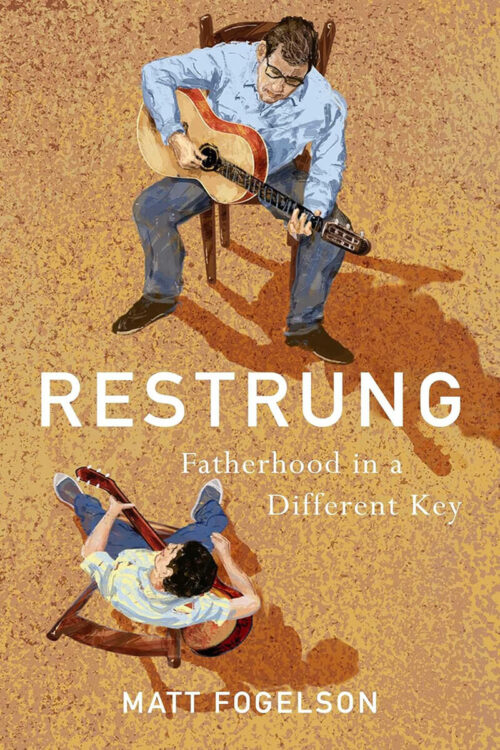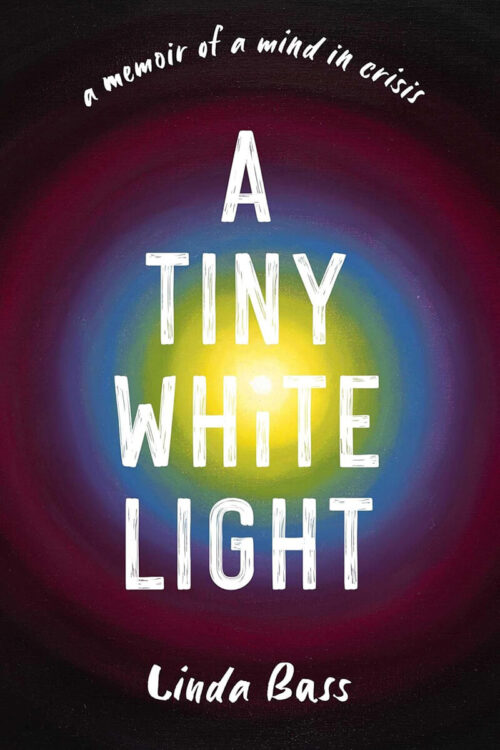-
 Raised in a chaotic, bohemian Hollywood household, Nikki Nash is lonely and becomes fixated on a bold mission: meet Warren Beatty and have him in her life forever. At eighteen, with determination and a detailed plan—which begins with getting a job near the Beverly Wilshire Hotel where Warren Beatty lives—her long-shot dream collides with reality. While Warren remains ever-present in her life, this is a deeper story of one woman navigating Hollywood as an actor, director, and comedian, as she maneuvers through addiction, alcoholism, and the eccentric fringes of L.A., brushing up against fame, danger, and dysfunction.
Raised in a chaotic, bohemian Hollywood household, Nikki Nash is lonely and becomes fixated on a bold mission: meet Warren Beatty and have him in her life forever. At eighteen, with determination and a detailed plan—which begins with getting a job near the Beverly Wilshire Hotel where Warren Beatty lives—her long-shot dream collides with reality. While Warren remains ever-present in her life, this is a deeper story of one woman navigating Hollywood as an actor, director, and comedian, as she maneuvers through addiction, alcoholism, and the eccentric fringes of L.A., brushing up against fame, danger, and dysfunction. -
 Fans of Bill Bryson will love this intimate and humorous memoir surrounding a group of expats as they entertain each other with their stories at a bar in a Costa Rican village. Willa and her wife travel to Costa Rica to visit family—but what they discover is far more than they expected . In a sleepy fishing village on the Pacific coast, they meet a vibrant, curious group of expats who have come looking for paradise—or at least cheap beer. At the Pato Loco, a local bar where stories flow as freely as the drinks, they meet Mama, the blind seventy-two-year-old co-owner of the place; her partner Mary, Willa’s sister, a bartender and installation artist; Richie, the aging hippie whose words are few but weighty; and a whole cast of unforgettable characters who will answer questions like:
Fans of Bill Bryson will love this intimate and humorous memoir surrounding a group of expats as they entertain each other with their stories at a bar in a Costa Rican village. Willa and her wife travel to Costa Rica to visit family—but what they discover is far more than they expected . In a sleepy fishing village on the Pacific coast, they meet a vibrant, curious group of expats who have come looking for paradise—or at least cheap beer. At the Pato Loco, a local bar where stories flow as freely as the drinks, they meet Mama, the blind seventy-two-year-old co-owner of the place; her partner Mary, Willa’s sister, a bartender and installation artist; Richie, the aging hippie whose words are few but weighty; and a whole cast of unforgettable characters who will answer questions like:- What is it really like to live in another country?
- How important is it to learn the local language?
- How does a tight-knit community face the pressure of development?
- Can you survive dengue—and would you want to?
- Oh, and how do you perform CPR on a fish?
-
 For those tied to the western landscape who wonder whether we might find redemption in the story of its water during a time of increasing climate extremes, a based-on-true-events tale of family farmers fighting to save the land they steward. Inspired by true events, this Chinatown-meets-The Grapes of Wrath novel tells the story of California’s Sacramento Delta farmers facing off against agribusiness owners over the massive water tunnel(s) the state plans to build under hundreds of thousands of acres of prime Delta farmland. Winter 2022-’23 inundated California with as much as three times the average rain and snowfall and pulled the state out of one of its biggest droughts in recorded history. But the truth is that the American West, from the Oregon border down to Mexico, is prone to drought—and in California, the biggest battle for water takes place in the Great Central Valley, where south-of-Delta agribusiness controls every stream feeding into the Sacramento and San Joaquin Rivers. The protagonists of More Than Any River are the family farmers fighting for the Delta, and the antagonist is the big agribusiness controlling its water—but ultimately, the Great Central Valley itself emerges as the central character in this gripping tale of divisive land politics and high stakes.
For those tied to the western landscape who wonder whether we might find redemption in the story of its water during a time of increasing climate extremes, a based-on-true-events tale of family farmers fighting to save the land they steward. Inspired by true events, this Chinatown-meets-The Grapes of Wrath novel tells the story of California’s Sacramento Delta farmers facing off against agribusiness owners over the massive water tunnel(s) the state plans to build under hundreds of thousands of acres of prime Delta farmland. Winter 2022-’23 inundated California with as much as three times the average rain and snowfall and pulled the state out of one of its biggest droughts in recorded history. But the truth is that the American West, from the Oregon border down to Mexico, is prone to drought—and in California, the biggest battle for water takes place in the Great Central Valley, where south-of-Delta agribusiness controls every stream feeding into the Sacramento and San Joaquin Rivers. The protagonists of More Than Any River are the family farmers fighting for the Delta, and the antagonist is the big agribusiness controlling its water—but ultimately, the Great Central Valley itself emerges as the central character in this gripping tale of divisive land politics and high stakes. -
 A soul-searching LGBTQ memoir about one woman’s attempt to plan her way to happily ever after—only to realize that healing, self-discovery, and love happen in their own time. Days after Corey’s breakup, a photo of her ex wrapped in the arms of another woman goes viral on Facebook. Confronted with this gleeful boast about “happily ever after,” Corey, a forty-something lesbian, decides that she can’t live in a state of perpetual loneliness, plagued with the burden of her own failure in finding happiness and love. Armed with her meticulously crafted checklist, Corey embarks on a mission to heal, move on, and find “the one.” But no matter how many items she checks off her list or how faithfully she follows the sage wisdom of psychics, her breakup coach, and the legendary rapper Eminem, her hope in finding her one true love begins to fade away—until she’s suddenly torn between two. Now, with her heart unexpectedly on the line, Corey must find out what she really wants—and where her true happiness lies.
A soul-searching LGBTQ memoir about one woman’s attempt to plan her way to happily ever after—only to realize that healing, self-discovery, and love happen in their own time. Days after Corey’s breakup, a photo of her ex wrapped in the arms of another woman goes viral on Facebook. Confronted with this gleeful boast about “happily ever after,” Corey, a forty-something lesbian, decides that she can’t live in a state of perpetual loneliness, plagued with the burden of her own failure in finding happiness and love. Armed with her meticulously crafted checklist, Corey embarks on a mission to heal, move on, and find “the one.” But no matter how many items she checks off her list or how faithfully she follows the sage wisdom of psychics, her breakup coach, and the legendary rapper Eminem, her hope in finding her one true love begins to fade away—until she’s suddenly torn between two. Now, with her heart unexpectedly on the line, Corey must find out what she really wants—and where her true happiness lies. -
 Weaving the author’s coming of age in 1980s New York with his life as a father today, this Nick Hornby–meets–Cheryl Strayed debut memoir examines father-son relationships, the pain of early parent loss, and the importance of embracing your passions. For nearly fifteen years, Matt Fogelson didn’t recognize how deeply the early death of his workaholic father had affected him. Then he had a son of his own and the floodgates opened, helping him realize that even deeper than the wound left by his father’s death were the wounds inflicted by his absence while alive. Restrung follows Fogelson from his beginnings as a music-loving kid combing through vinyl in Greenwich Village, through his struggles to overcome his grief during young adulthood, and into becoming a man who is startled by the reemergence of his long-suppressed passion for music after becoming a father. Told with humor, grief, and hope, it’s the story of a passionate music lover’s effort to break free of the real and imagined constraints standing between him and his best life—an effort that ultimately allows Fogelson’s son to know his father in a way Fogelson never knew his. Funny and deeply honest, Restrung is a balm for every father and son fortunate enough to still have each other in their lives. It will inspire readers to try to cross the emotional gulf that seems almost endemic to the father-son relationship and finally break through to one another.
Weaving the author’s coming of age in 1980s New York with his life as a father today, this Nick Hornby–meets–Cheryl Strayed debut memoir examines father-son relationships, the pain of early parent loss, and the importance of embracing your passions. For nearly fifteen years, Matt Fogelson didn’t recognize how deeply the early death of his workaholic father had affected him. Then he had a son of his own and the floodgates opened, helping him realize that even deeper than the wound left by his father’s death were the wounds inflicted by his absence while alive. Restrung follows Fogelson from his beginnings as a music-loving kid combing through vinyl in Greenwich Village, through his struggles to overcome his grief during young adulthood, and into becoming a man who is startled by the reemergence of his long-suppressed passion for music after becoming a father. Told with humor, grief, and hope, it’s the story of a passionate music lover’s effort to break free of the real and imagined constraints standing between him and his best life—an effort that ultimately allows Fogelson’s son to know his father in a way Fogelson never knew his. Funny and deeply honest, Restrung is a balm for every father and son fortunate enough to still have each other in their lives. It will inspire readers to try to cross the emotional gulf that seems almost endemic to the father-son relationship and finally break through to one another. -
 From an author with a psychology background, a candid memoir about the interior of her own psychotic episode and its origins in guilt, lost purpose, conflict between mothering and career, and the ambiguity in her relationship with her therapist. Only weeks after nineteen-year-old Linda’s family moves from a small, rustic town in Wisconsin to the sex, drugs, and rock and roll of Los Angeles in 1967, her family disintegrates: her parents divorce and she and her younger brother, Brian, suddenly must fend for themselves. Linda finds a foothold in academic pursuits and part-time work, but Brian quickly spirals downward—behaving erratically, landing in psychiatric hospitals and jails, and, finally, committing an irrevocable act. Plagued with guilt over Brian’s deterioration, Linda loses her sense of purpose, abandons a promising career in psychology, and finds herself in a life she never envisioned—poor, alcoholic, an accidental parent in an unhappy marriage, feeling invisible and alone. At her husband’s urging, Linda starts seeing a psychologist, Sam, who quickly becomes a touchstone for what she has lost: her sense of self. Feeling truly seen, she falls in love with Sam and believes he might return her feelings, but he gives mixed messages. The ambiguity, mingled with other overwhelming stresses, triggers her descent into a psychotic episode—one that echoes her dreams, Brian’s experience, and Sam’s own phobia. Standing at the brink of self-destruction, Linda realizes she is at a turning point: She can continue stumbling down her brother’s path—or she can find her way back to herself and create the life she longs to live.
From an author with a psychology background, a candid memoir about the interior of her own psychotic episode and its origins in guilt, lost purpose, conflict between mothering and career, and the ambiguity in her relationship with her therapist. Only weeks after nineteen-year-old Linda’s family moves from a small, rustic town in Wisconsin to the sex, drugs, and rock and roll of Los Angeles in 1967, her family disintegrates: her parents divorce and she and her younger brother, Brian, suddenly must fend for themselves. Linda finds a foothold in academic pursuits and part-time work, but Brian quickly spirals downward—behaving erratically, landing in psychiatric hospitals and jails, and, finally, committing an irrevocable act. Plagued with guilt over Brian’s deterioration, Linda loses her sense of purpose, abandons a promising career in psychology, and finds herself in a life she never envisioned—poor, alcoholic, an accidental parent in an unhappy marriage, feeling invisible and alone. At her husband’s urging, Linda starts seeing a psychologist, Sam, who quickly becomes a touchstone for what she has lost: her sense of self. Feeling truly seen, she falls in love with Sam and believes he might return her feelings, but he gives mixed messages. The ambiguity, mingled with other overwhelming stresses, triggers her descent into a psychotic episode—one that echoes her dreams, Brian’s experience, and Sam’s own phobia. Standing at the brink of self-destruction, Linda realizes she is at a turning point: She can continue stumbling down her brother’s path—or she can find her way back to herself and create the life she longs to live.
